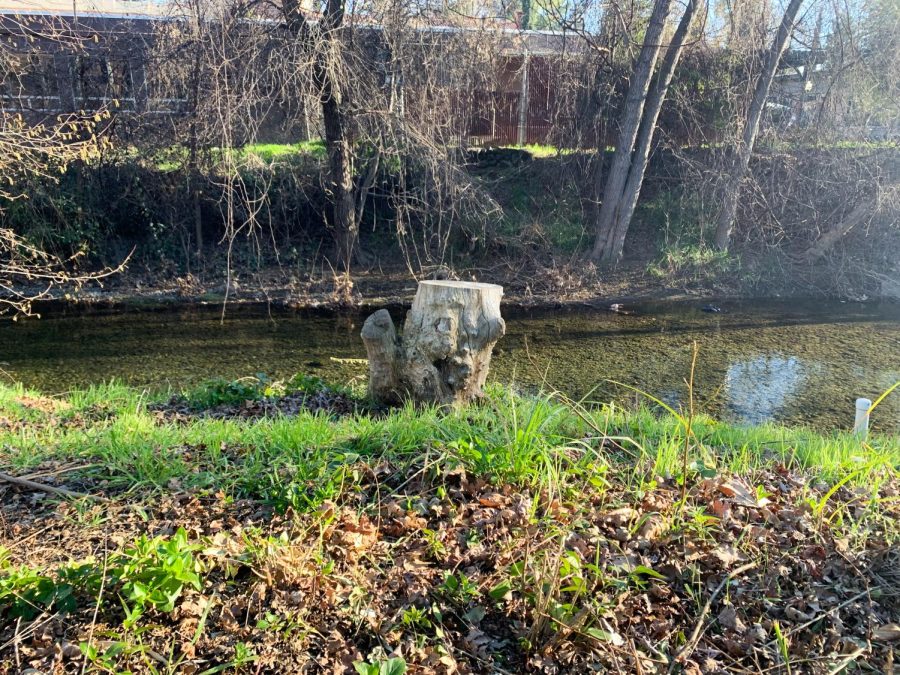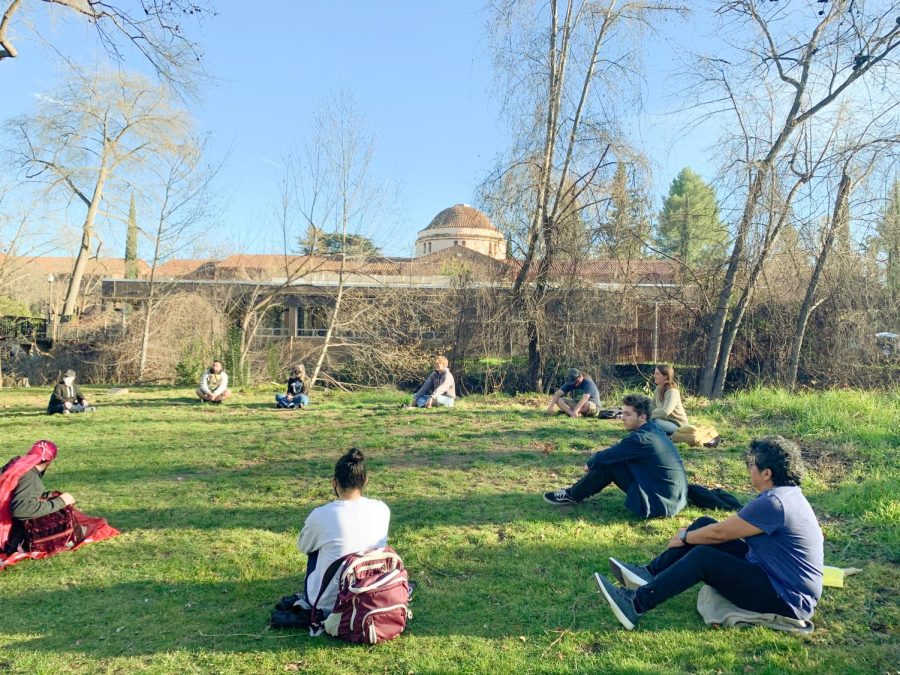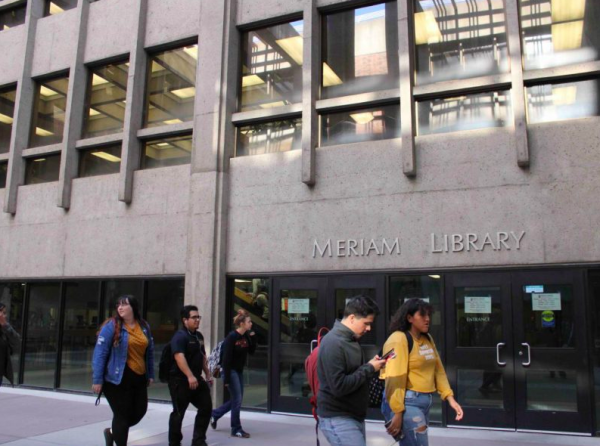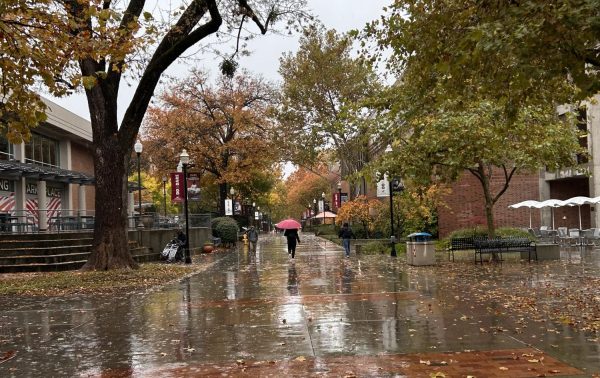Forest Therapy Tuesdays offers unique approach to de-stress between classes
Blake Ellis guides students through a Forest Therapy session by Big Chico Creek on Feb 3. Photo taken by Gabriela Rudolph.
Chico State Enterprise’s Ecotherapy Program held their first Forest Therapy session on Feb. 1, where students took an hour to de-stress in nature. This program takes place on the first and third Tuesday of every month by the Big Chico Creek on campus from 12:30 p.m. to 1:30 p.m.
“Forest Therapy is a guided immersive experience in a natural environment to help promote the health and well being of the people and the land,” said Blake Ellis, Ecotherapy program manager.
Forest Therapy Tuesdays start in front of Butte Hall where the guides give a land acknowledgement to the Mechoopda Tribe.
The group then migrates toward the creek and sits in a circle where the guides invite them to take a moment to breathe and observe the world around them using their five senses. Next, the group is instructed to move their body wherever it feels like going and take a few minutes to walk around. In the final activity, the guides ask the group to find a spot to sit in nature and simply do nothing for 10 minutes.
After each of these activities, the guides invite the group to share anything they noticed.
“It’s nice to be conscious of mother nature and to be present,” junior Alex Teague said.

Forest therapy is based on the Japanese practice of Shinrin-Yoku, which directly translates to “forest bathing.” It was developed in the 1980s during the Digital Revolution when many stress-related health problems began to arise due to the lack of spending time outdoors.
Researchers conducted studies to observe what happens when people spend more time in forested areas. They discovered that being immersed in nature activates the parasympathetic nervous system, which refers to the body’s “rest and digest” state. People in these studies were also found to be less stressed and had an increased sense of creativity, productivity and happiness.
“Trees release these chemicals called phytoncides and those are essentially the tree’s way to keep itself healthy and protected,” Ellis said.
When breathing in phytoncides, it creates natural killer cells, which helps the body fight off illnesses.
Ellis discussed how Eli Goodsell, director of the Ecological Reserves, hired 10 trained forest therapy guides after the Camp Fire in order to help treat the arising need for mental health services in the community.
“A lot of those populations that were impacted by the fire are not going to be comfortable with conventional talk therapy,” Ellis said.
In 2019, the Ecological Reserves received a grant for $50,000 from the North Valley Community Foundation’s Butte Strong Fund, which is a collaboration between NVCF, Sierra Nevada Brewing Company and Aaron Rodgers’ NorCal Fire Recovery Fund. The “Forest Therapy for Community Recovery” project was able to assist 450 Camp Fire survivors through their traumatic experiences with the funding.
Emilliano Jimenez is a forest therapy guide certified by the Association of Nature & Forest Therapy who helped lead this event on Tuesday.
In order to be certified, Jimenez described the process to be an intensive six-month training with a four-day immersion where he spent eight hours a day dedicated to forest therapy. Guides are educated on native flora and fauna, indigenous history and safety protocols.
Chico State Enterprise’s Ecotherapy Program was brought onto Chico State’s campus in the fall semester by the Ecological Reserves in partnership with WellCat Counseling Center to bring a holistic approach to health and wellness. The program is funded by the Higher Education Emergency Relief Fund in order to offer an alternative mental health service to students who’ve spent the pandemic away from others socially.
“I spend a lot of time over Zoom, a lot of training, a lot of other work on the computer,” Jimenez said. “To be able to slow down and stop and guide, or be guided, in a forest therapy walk, it really helps me recenter myself, relax myself and gives me clarity of what is and what isn’t important.”
The Ecological Reserves also offers other Forest Therapy programs at Big Chico Creek. There will be sessions on Feb. 12 and Feb. 27, along with a Full Moon Forest Bathing on Feb. 16.
Gabriela Rudolph can be reached at [email protected].
Forest therapy, mental health, meditation









